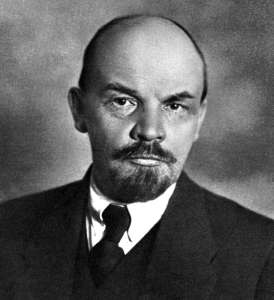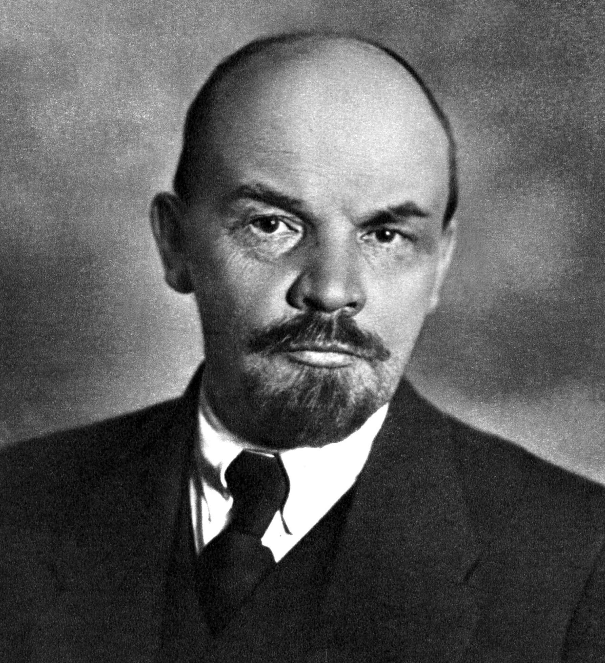By Owei Lakemfa
Vladimir Ilyich Ulyanov was a simple, straight forward man whose life ambition was to stop human beings from being exploited by others. His life was characterised by studies of all kinds, the power of human reason, a simplicity that concealed his tenacity, his audacity that led to the October Russian Revolution and his love for the human race irrespective of race, gender, region and religion.
Lenin did not set out to change the world, but when the world around him changed, he became a catalyst for change. He had a protected childhood and seemed unconcerned with the world until a month before his 17th birthday in March 1887 when Alexander, his elder brother who was a Zoology student, was arrested for involvement in a plot to bomb Czar Alexander III. Alexander Ulyanov was hanged two months later.
Lenin tried to move on a few months later by securing admission to read law at the Kazan University, but was expelled within months for participating in a students’ protest. He could not get a new admission and had to study as an external candidate at St. Petersburg University, graduating in 1891. But he remained on the radar screen of the Czarist monarchy and tried to evade arrest by using aliases like Petrov and K. Tulin. Three years later, he was sent to prison for one year and then moved to Siberia where he was released in 1900. He then adopted the alias Lenin, after the Lena River in Siberia.
Following the completion of his sentence, Lenin left for exile, and except for a brief visit in 1905 during a failed uprising, spent the next 17 years abroad before returning to lead the 1917 Russian Revolution.
Karl Marx had developed the revolutionary theory that became known as Marxism. But Marx passed away on March 14, 1883 and had such not witnessed the 1884/85 Berlin Conference where Europe and the United States met to carve out other parts of the world into colonies. This had a fundamental impact on the capitalist system Marx had so expertly analysed. Lenin in studying Marx, extended the theory in the context of new realities and concluded that humanity had gone beyond the capitalist system to build an higher system- imperialism. He posited that it was an era of oligopoly with a few countries accumulating capital and exporting it to the new colonies. He published his conclusions in a book titled: Imperialism, the Highest Stage of Capitalism. Lenin in his simple style of explaining what appears complex , said: “If it were necessary to give the briefest possible definition of imperialism, we should have to say that imperialism is the monopoly stage of capitalism.”
In his book, State and Revolutionary, he explained his praxis on Marxism: “During the lifetime of great revolutionaries, the oppressing classes constantly hounded them, received their theories with the most savage malice, the most furious hatred and the most unscrupulous campaigns of lies and slander. After their death, attempts are made to convert them into harmless icons, to canonise them, so to say, and to hallow their names to a certain extent for the ‘consolation’ of the oppressed classes and with the object of duping the latter, while at the same time robbing the revolutionary theory of its substance, blunting its revolutionary edge and vulgarising it.”
For his deepening and expanding revolutionary praxis, the ideology became known as Marxism-Leninism. At this time, the All-European War which was called the First World War was raging. While the various parties, politicians and ruling classes queued behind their various governments, Lenin and his relatively small party refused. He correctly saw it as a war to share colonies as booty and a struggle to accumulate wealth.
Lenin described the conflict as “an annexationist, predatory, plunderous war” over which workers and farmers across the world do not need to lose their lives. He led the Bolshevik Party to pressure Russia get out of the war. The programme for revolution was simple: ensure peace by getting out of the war, providing the masses, especially poor farmers, land, and ensuring food for the starving population. The slogan was simple: “Peace, Land, and Bread.”

While most in Russia dillydallied, Lenin saw the opportunity to carry out a socialist revolution many had theorised about. He analysed that power was lying in the street; so the issue was not about theory, but fighting to pick it up. Lenin led an armed attack bringing down the government in days of fighting. His theory is that: “There are decades where nothing happens; and there are weeks where decades happen.” These were days that changed Russia and world politics.
The Bolsheviks within two years effectively took over the country in what became known as the Great October Revolution. So Lenin succeeded in turning the theory of Marx into practice.
The Russian Revolution inspired many revolutions across the world. These included that in Yugoslavia led by Marshall Tito, the Romanian, Czechoslovak (now Czech and Slovak Republics) and Polish revolutions plus those across Eastern Europe.
Marxism-Leninism gave birth to the 1949 Chinese Revolution and to what became known as Maoism. It inspired the Vietnamese to throw out French colonialism and defeat the American forces of occupation.
It led to the revolts by Latin American countries, including the Nicaraguan and Venezuelan Revolutions.
Many countries in the West like Britain, United States and Israel supported Apartheid, helped the racists build nuclear weapons and encouraged them to imprison or kill liberation fighters like Nelson Mandela, Walter Sisulu and Ruth First on the false premise that they were terrorists. In contrast, the socialist countries, including the defunct Union of Soviet Socialist Republics which had been influenced by Marxism-Leninism, supported the liberation fighters. Thanks to the these followers of Leninism, many African countries, including Algeria, Guinea Bissau, Cape Verde, Mozambique, Angola, Zimbabwe, Namibia and South Africa became free.
On August 30, 1918, Lenin was shot by a lady, Fannie Kaplan. He never fully recovered. On January 21, 1924 he died at 53. To mark a century of his exit, an international conference on his ideas is holding in Abuja, Nigeria from January 22-23, 2024. The theme is ‘Lenin, Leninism, Africa and the World.’
The idea according to the Conference Coordinating Committee which I chair, is to “specifically examine Marxism-Leninism as a tool for analysing neo-liberalism, multilateralism, the rise of bodies like the BRICS, globalism and the contemporary world…; examine why the Socialist Bloc collapsed and if Marxism-Leninism can be used to analyse, understand and tackle the current challenges of democracy and underdevelopment in Africa and whether it is still emancipatory and relevant today.”
Lenin was a simple man who changed the course of world history; his life teaches humanity loads of lessons.
Dear readers, we really need your support to keep on serving you with authoritative, truthful, and juicy stories everyday. For your support, please reach out to the editor @gavelinternational66@gmail.com

